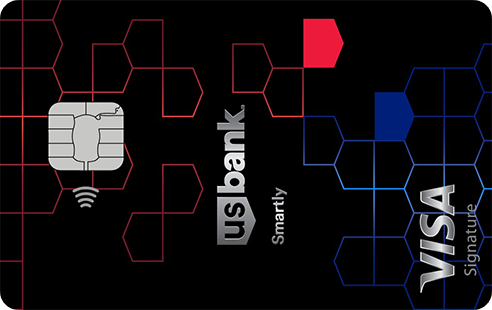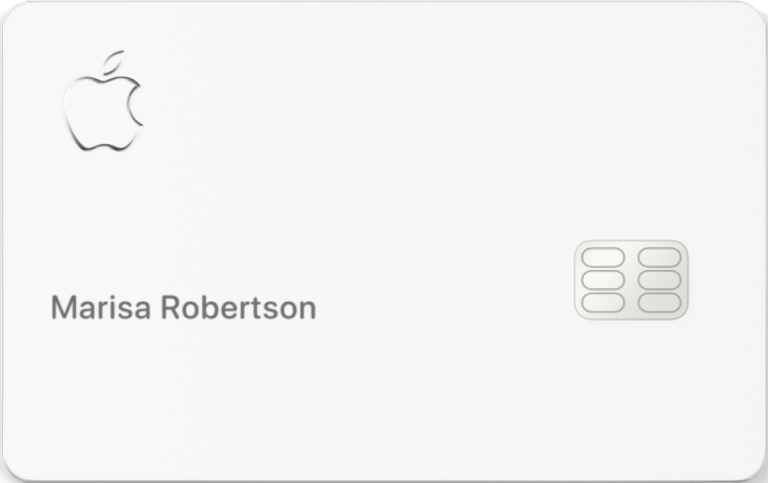
Do you remember applying for your first credit card? Didn’t it feel so official filling out all those little boxes and picturing the day that shiny new card with your name on it would show up in the mail?
Yes? If you’ve applied before then you probably also remember seeing the questions about your annual income and feeling a bit puzzled.
Or maybe you haven’t applied for credit yet because you’re fresh out of school and earning minimum wage, or perhaps not employed yet. How do you answer questions about income if you don’t have much yet … or any?
You’re likely wondering things like, “What is a good annual income to declare to get a credit card?” or “Can I lie about income on a credit card application?” (Spoiler alert: Not ever recommended!)
Credit card veterans may feel they could have done better with those applications and may still have questions. Or if you’re a newbie in the anticipation stage, you may be wondering how to apply for a card but aren’t sure how. Maybe it’s even holding you back from applying.
Well, we have some ideas about what to do if either scenario sounds like you. Read on to explore ways to talk about your income on credit card applications when income is skimpy or hiding just around the corner.
Why Do Credit Cards Ask for Income on Applications?
Credit card issuers aren’t asking about income because they’re being snoopy. The truth is they’re being legally responsible and following the Credit CARD Act of 2009. Credit issuers are legally obligated to ask for your income, as they can only lend you money if they’re confident you can make your payments.
While the law doesn’t indicate a specific income requirement, it does state that banks can only lend you money if they’re confident you can make your monthly payments. And to do that, they need to know how much money you’re earning.
Aside from fulfilling their legal duties, your income levels also help credit card companies decide how high your credit limits should be. Because, like the government, they want to ensure you can pay them back and part of this means not extending to you more credit than is warranted.
Say your salary works out to about $5,000 per month. With that amount, a $2,500 credit line seems reasonable — even if you maxed it out, you’d be able to pay it off in full each month. (Which we always recommend to avoid interest and help improve your credit scores!)
But if your take-home salary is $2,000 per month, a $2,500 credit line would probably be way too much. You’d be at greater risk of defaulting on your card than in the first scenario.
Keep in mind that different card issuers have different standards for creditworthiness. Super Express Bank might feel comfortable giving you higher credit limits than Duper Express Bank, for instance. (Obviously fake bank names for this example.)
Credit Limit Increase
If your current issuer wants your income, they may be considering a credit limit increase. If you get the increase and don’t increase your spending, your credit utilization will drop.
What Types of Income Can You Include on a Credit Card Application?
You can include several types of income. A higher income will generally help your approval odds and allow for higher credit limits. Let’s take a closer look at what that means.
If you’re over 21, you can count any sources of income to which you have “reasonable expectation of access.” We’ve listed a few you can count:
- Part-time or full-time income
- Alimony or child support
- Gifts or trust fund payouts
- Social Security payments or pensions
- Retirement fund payments
- Investment income
If you live with a partner or spouse, you can also count his or her income toward your “household income,” thanks to a Consumer Financial Protection Bureau (CFPB) amendment in 2012.
If you’re under 21, you can only count “personal income” from your job, scholarships, or grants. You can’t include your parents’ income unless they cosign for the credit card (which is usually not recommended).
And we also wouldn’t recommend counting your student loans, because they’re another form of debt and in most cases they don’t qualify as income.
How Do You Calculate Your Income for Credit Card Applications?
Sometimes, credit card issuers ask for a specific type of income, and other times, they keep it vague. So determining which number to scribble in the income box can be confusing.
Here are a few terms you might see about your annual income on credit card applications:
- Gross income: Your total annual income before anything’s taken out. Unless the application specifies otherwise, this is usually what the issuer is looking for.
- Net income: Your gross income, minus taxes and other expenses (like a 401(k) contribution). In other words, what you end up taking home in your paycheck, multiplied by the number of times you get paid each year.
- Monthly income: Your gross annual income divided by 12.
Don’t lie about your income, but don’t stress if you can’t figure out an exact number. You don’t need to bust out a calculator and add up every paycheck from the past year.
Give them your best estimate — and be honest. While you could get into trouble if you knowingly inflate your income by a large amount, you’ll be fine if you’re a little bit off.
If you’re paid hourly, multiply your wage by the number of hours you work each week and the number of weeks you work each year. For example, if you earn $12 per hour and work 35 hours per week for 50 weeks each year, your gross annual income would be $21,000 ($12 x 35 x 50).
How Much Annual Income Do You Need to Be Approved for a Credit Card?
Sorry if you’re looking for a magic number, but there’s no mandated total annual income for credit card approval. Credit card issuers look at a range of information, which we’ll review further below.
One important factor — which you can calculate yourself — is your debt-to-income ratio, also known as your DTI.
- Say you earn $36,000 per year, or $3,000 per month.
- You have monthly payments on your auto loan ($200), student loan ($250), and mortgage ($800), for a total of $1,250.
- When you divide your monthly debt ($1,250) by your monthly income ($3,000), you get a DTI of about 42%.
For the best chance of being approved for a credit card, you want your DTI as low as possible. The CFPB says people with a DTI of more than 43% can’t qualify for a mortgage, for example, although this doesn’t apply to credit cards (there is no specific DTI value for credit card approval).
In addition to your income, credit card issuers may ask for the balances of your checking and savings accounts, the amount of your monthly housing payment, and the name and phone number of your employer.
How Do Credit Card Companies Verify Income?
Since income doesn’t show up on your credit reports, most credit card issuers don’t actually verify your income. For low lines of credit, it’s not worth their time or money.
Issuers may employ “income modeling,” which uses information from your credit reports to estimate your income, or they may conduct a “financial review” if you submit several credit card applications in a short amount of time or exhibit suspicious behavior.
Some card issuers which serve people with bad credit or limited credit may also require access to your bank account to check the balance themselves. This is because they want to ensure that people with less-than-great credit have the ability to pay their debts, and typical credit scoring systems won’t provide this information.
Issuers reportedly might also check that your income makes sense in the context of your employment. They’re probably not, however, going to call your employer or the IRS.
But that doesn’t mean you should lie on your credit card application. Technically, doing so would amount to loan fraud – a serious crime – and could land you hefty fines or even jail time.
Although it’s extraordinarily rare, it does happen: One man paid nearly $50,000 in fines for falsely inflating his income on credit applications, and another got five years in prison.
The most likely consequence of lying is you’ll end up with a higher credit limit than you can manage.
That could lead you to rack up high-interest credit card debt you can’t pay back. And, if you eventually declare bankruptcy, those lies could prevent you from receiving discharges of your debt.
In other words: Tell the truth. Every time.
How Much Can I Get Approved For?
It’s tough to answer the question, “What should my credit limit be based on income?” because so many different factors are involved:
- Credit history and scores
- Debt-to-income ratio
- Employment and housing status
To give you a ballpark range, here are the average credit limits for various scores, according to CNN Money and Experian™:
| Credit Score | Credit Limit |
| 781 – 850 | $9,543 |
| 661 – 780 | $5,209 |
| 601 – 660 | $2,277 |
| 500 – 600 | $966 |
| 300 – 499 | $509 |
As you can see, the higher your scores, the higher your credit limit (generally). Having a higher income and low DTI will also help.
Check Your Credit
Before applying for new credit, it’s smart to check your credit scores and credit reports. You can also see if you’re pre-approved for any credit card offers.
Can You Get No-Income Credit Cards?
If you’re trying to apply for a credit card without income, we’ve got some bad news: They don’t really exist.
It’s virtually impossible to get a credit card with no annual income. Your best option would be to explore secured credit cards. These require you to pay an upfront deposit that, in most cases, then serves as your credit limit.
Before applying for one of these, though, ask yourself how you’ll pay the bill each month.
If you have no income, and plan to rack up charges without paying them off, we’d urge you to avoid credit cards altogether. Because of their high interest rates, they’re an extremely unforgiving form of loan.
Case in point: Even if you somehow managed to get an 18% APR credit card with a $1,000 limit, and then maxed it out and only made the minimum payments, you’d spend $798 in extra interest, and it would take you ten years to pay it off. Um, thanks but no thanks.
Instead of looking at credit cards as an emergency fund, focus on repaying debt and increasing your income. Then, when you’re ready, apply for one of the best credit cards available that’s right for your particular situation.




